Helmsley-Salk Fellow and senior author Patrick Hsu, first author Silvana Konermann, and colleagues have created a new genetic-editing tool that targets not DNA, but RNA, and uses it to correct a protein imbalance in cells from a person with dementia. The new Salk tool, called CasRx, opens up the vast potential of RNA and proteins to genetic editing, giving researchers a powerful way to develop new gene therapies as well as investigate fundamental biological functions. They described CasRx in Cell on March 15, 2018.
CRISPR genetic editing takes another big step forward, targeting RNA
Featured Stories
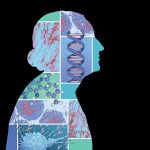 Interaction + Infrastructure = Innovations in Healthy AgingSalk formula recalculates aging research, shifting focus to overall resilience and health span.
Interaction + Infrastructure = Innovations in Healthy AgingSalk formula recalculates aging research, shifting focus to overall resilience and health span. Professor Jan Karlseder named Salk’s Chief Science OfficerOn February 1, Jan Karlseder started as Salk’s new senior vice president and chief science officer (CSO).
Professor Jan Karlseder named Salk’s Chief Science OfficerOn February 1, Jan Karlseder started as Salk’s new senior vice president and chief science officer (CSO). 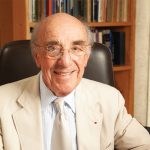 Salk mourns the loss of Nobel Laureate Roger GuilleminThe Institute remembers the “father of neuroendocrinology” for his many contributions to science and friendship to all.
Salk mourns the loss of Nobel Laureate Roger GuilleminThe Institute remembers the “father of neuroendocrinology” for his many contributions to science and friendship to all.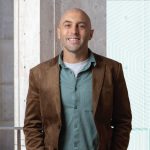 Daniel Hollern–Turning a cancer diagnosis into a career in basic researchAssistant Professor Daniel Hollern pivoted his career trajectory after a family member’s life-changing diagnosis pushed his already-curious mind off a cliff of questions—starting with, “What can I do to help him?”
Daniel Hollern–Turning a cancer diagnosis into a career in basic researchAssistant Professor Daniel Hollern pivoted his career trajectory after a family member’s life-changing diagnosis pushed his already-curious mind off a cliff of questions—starting with, “What can I do to help him?” Jerry Sheehan–Collaborating shoulder to shoulder with scientistsWhen you think about a person who heads an information technology department, you might not envision them working shoulder to shoulder with research scientists. But that’s exactly the approach Jerry Sheehan is taking as Salk’s new chief information officer (CIO).
Jerry Sheehan–Collaborating shoulder to shoulder with scientistsWhen you think about a person who heads an information technology department, you might not envision them working shoulder to shoulder with research scientists. But that’s exactly the approach Jerry Sheehan is taking as Salk’s new chief information officer (CIO).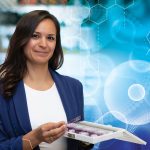 Laura Mainz–Taking control after a cancer diagnosisLaura Mainz grew up in a tiny village in midwestern Germany, with just as many cows as people. But the sweeping landscape speckled with farms never swayed her toward plant biology—instead, her interest in the human body grew.
Laura Mainz–Taking control after a cancer diagnosisLaura Mainz grew up in a tiny village in midwestern Germany, with just as many cows as people. But the sweeping landscape speckled with farms never swayed her toward plant biology—instead, her interest in the human body grew.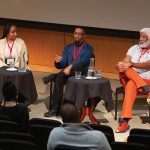 Black Association affinity group cultivates welcoming environmentThe Black Association at Salk (BAS) was one of the first affinity groups formed at Salk in 2020. Since that time, it has established itself as a welcoming space and go-to for resources for all Black Salk community members.
Black Association affinity group cultivates welcoming environmentThe Black Association at Salk (BAS) was one of the first affinity groups formed at Salk in 2020. Since that time, it has established itself as a welcoming space and go-to for resources for all Black Salk community members.
Support a legacy where cures begin.
Scientific discovery at the Salk Institute is made possible through your annual contributions. Your support will accelerate the pace of breakthroughs in understanding disease and pave the way to new drug therapies.
Get involved



















































